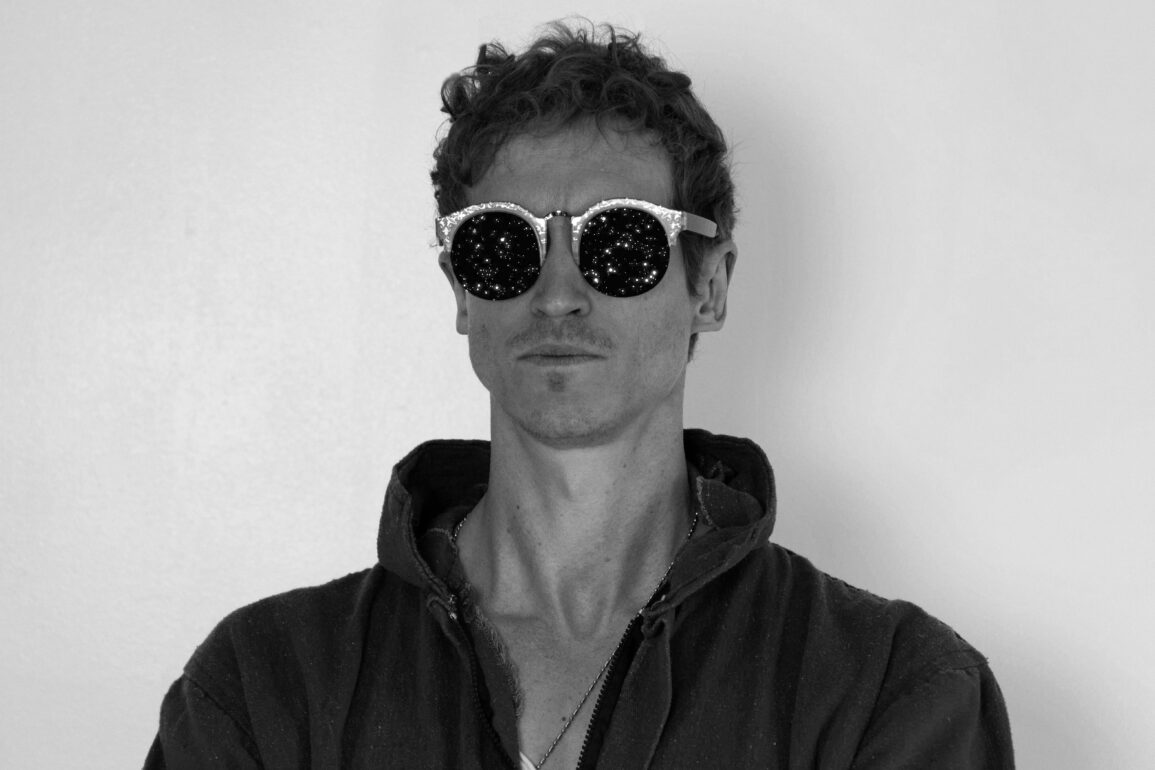Cover Photo Credit: Richard Thompson III
One half of jazz-funk duo Knower as well as (allegedly) the experimental duo ClownCore. A drummer. A multi-instrumentalist. A producer. Music visionary. Music nerd. And simply a cool dude. Here is a little summary of Louis Cole for those who don’t know the man yet.
Cole is set to release his most sonically expansive project with Metropole Orkest and Jules Buckley. nothing is out August 9, and we had the chance to chat with Cole briefly on Zoom beforehand. Kindly read below.
How are you doing? Everything going good?
No, but the album is good. (laughs)
If you ask me, you naming one of your most sonically expensive projects nothing feels just right in the most poetic sense. I have always been fascinated by the idea that everything ultimately comes out of nothing. What was your thought process in coming up with that title, exactly?
I just wrote a song that I was really happy with. It’s really simple, but it also has a deep impact, at least for me. I just really liked it a lot when I was working on it. I called it “nothing”, and it was one of the last songs I wrote for the project. It was my favorite track, and there’s another song that has the word nothing in it, so I was like, I guess I’ll just call the album nothing.
That word just connected it all in a sense, maybe?
Yeah, I think so. It feels like that.
One of the singles you released from the album is called “These Dreams Are Killing Me.” Do you dream often, and what do you dream about?
I dream every time I sleep. I’m never not dreaming. The only time I don’t dream is if I take a sleeping pill. Sometimes I wake up, and it’ll feel like I woke up really fast. But if I’m just sleeping naturally, I dream every time, and I dream about the weirdest stuff. I don’t know if there’s any themes to it, really.
I guess you have some active subconscious that maybe involuntarily effect your work, in a sense.
I think it’s totally possible. Yeah. That’s probably true. I don’t think anyone can say ye sor no to that, because I don’t think anyone really understands what’s going on, but I think it makes sense to me that that would be the case.
Obviously, nothing is really grand in the sense that you are working with a full-on orchestra, with so many people present in the mix.
Yeah, it’s a lot.
Did that feel like you are stepping out of your comfort zone, especially considering you are more of a bedroom studio kind of person while recording? Obviously, this was recorded through live performances and not in the studio. Was there a sense of boldness for you in that crowdedness?
Yeah, for sure. Because it’s different. I’ve done overdubs with strings and horns and all that, but it’s really different when it’s everyone playing together. You have to take care of certain things in the writing and the arranging to really optimize that kind of a group playing situation, so yeah, I was definitely out of my comfort zone. I felt very excited by that, though. Felt happy to be doing that.
How did you initially contact Metropole Orkest and Jules Blackley about this particular idea?
They reached out to me and asked if I wanted to write music for them. I was like, “Yes!” I was very thrilled.
Were they welcoming towards you incorporating your funky jazz style to their organization?
They were a little bit weirded out at first, I think, when they heard the demos, which were really distorted, crusty and lo-fi, with sh.tty midi sounds and stuff. When they eventually got around to listening to the demos, they were like, “Oh man, this is not gonna work!” (laughs) They tried to change all my arrangements, and we ended up changing them back to mostly what I did, which was good. (laughs) They just needed a minute to hear the music and actually absorb it. Eventually, by the end of the project, there was full trust.
It is obvious from the released tracks that you have great chemistry, but obviously, you had to pick from many live recordings you had in your hands for the completed record. How easy or difficult was it for you to select the final batch of songs? Was there material you wished you could use later on, although not on this record?
That’s a good question. There’s a few songs I didn’t keep, and I still like those songs, but I had to stop it somewhere. I feel like the album said everything it needs to say. There’s a couple of songs I kind of miss being on there, and then there’s certain takes of songs that were really good that I just didn’t use because it was hard to choose between takes. “This night was better than this night was better than this night.” That’s kind of hard. There are other ones that are really good, but I had to choose one. I didn’t want to put out multiple versions.
I guess it is a good feeling to finally say goodbye to some of that weight. It can feel almost empowering in a sense, to give up on certain tracks.
Yeah, for sure. I didn’t really know that was gonna be a good feeling until just one day at the end of mixing everything, I was like, “Let me try a track order.” I put the tracks in an order I thought was good, listened to it all the way through, and I was like, “Oh man, this actually is really good as an album, as a piece of work.” It goes to all the places that I imagined, and it really nails everything that I wanted to nail. And I think it really works as a straight listen through. I don’t normally view my albums like that, but this one felt good that way. Then I felt very happy that I didn’t include anything that I didn’t need to include.
Do you have a certain two tracks on your mind, one easiest and one hardest to finalize?
Let me look at the track list.
“Things Will Fall Apart.” Track two. That one was the hardest to mix from a production standpoint. I mixed that one like 70 times, or something like that.
Wow.
Yeah. (laughs) I would also say that the hardest one to write was the song called “nothing”, track seven. I feel like writing a song just for strings that’s simple, timeless, emotionally impactful and sounds still kind of fresh is the hardest thing to do for me. I’ve been trying to write a song like that for twelve years, or something like that. And I finally was able to do it. So I think, in a sense, that one was the hardest to write.
I don’t know if it’s the easiest to write, but one that just came out very easily for me was the song called “Life”, track three. It just kind of flowed out. The mix was also somehow easier. There are some shorter songs that were definitely easy, like this song called “Who Cares.” It’s almost like a little interlude track. But as far as the full-length ones, I would say “Life” just flowed easier for me.
When you check your streaming platform history, what are the last three tracks you listened to?
I use YouTube music. Let me check.
There’s “O Nata Lux” by Morten Lauridsen. Then “Kiteracer 2” and “Korona” by Boards of Canada.
I also really love watching your music videos. Can you name a really fun memory from making any one of them?
Let me check my YouTube… The video for “Let It Happen” was really difficult and pretty stressful, honestly. But it was also sometimes really fun just to try to set that up. (laughs) I’d be like a mile away from my friend, and I’d be calling them and being like, “All right, do you see me?” They would zoom in with this camera from really far. I had a metronome in my pocket. It was set to the beat of the song, and then I’d be like, “All right, I’m gonna sing in two bars,” so they knew when to zoom in and stuff. It was annoying and a lot of work, but it was also really cool.
Let’s imagine we’re at a Musicians Theme Park 100 years from now, where every artist or band featured have their own memorial stone with a certain lyric by them written on it. Which one of the lyrics would you like to see written on your stone?
Let me check.
I’m making you check a lot of things this evening.
(laughs) Yeah. No worries.
I guess if I’m putting it on a memorial stone, I would do the chorus for the song “Life” off my new album, which is: “Be here, be lost / Go through, a lot / Pass on, forgot / Yeah life, so hot.”
You can check out Louis Cole’s Bandcamp page here.



